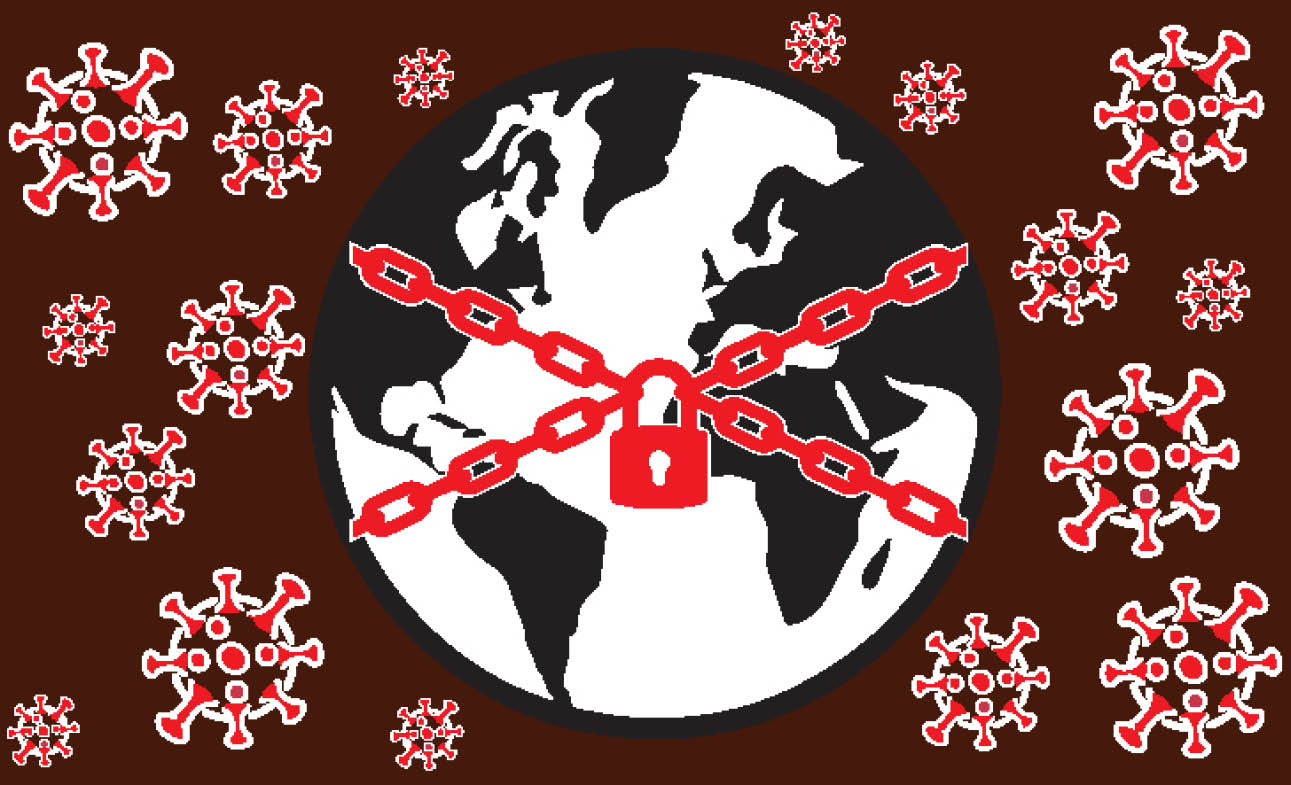According to health experts, the key risk factor in the spread of COVID-19 is contact with anything that has the virus as well as infected breath, coughs or sneezes. The best protection against the disease therefore includes social distancing and isolation; with lockdown of cities and towns as the height of it. On Sunday March 29, 2020, President Muhammadu Buhari in a national radio and television broadcast addressed Nigerians on the measures for containing the spread of COVID-19. He announced that beginning from 11pm on Monday March 30, 2020, there was going to be total lockdown in Lagos State, the Federal Capital Territory (FCT) and Ogun State.
The lockdown, which after three days was reviewed to become partial, is now 12 days old. Only shops that deal in pharmaceuticals and food items as well as persons on essential duties were exempted from the lockdown. In one of its daily briefings, the Presidential Task Force on COVID-19 permitted residents to go out from 10am to 2pm to get their essential needs. Another review of the lockdown announced by the Task Force few days ago allowed markets to operate three days within the week.
There were insinuations that government undertook the reviews because of its inability to provide necessary palliatives for the mass of residents whose movements were restricted in the states locked down by the federal government. Another theory suggested that the review was induced by pressures mounted on government by some “powers that be”. The suspension of the Information Minister in South Africa where the total number of cases still stood at 53 (two days ago) for violating the lockdown order is a message for Nigeria. Ignoring that which prompted or provoked government to slacken the noose of the lockdown, is for us to say whether those reviews have helped or is helping the country in its fight against coronavirus pandemic. A credible way of ascertaining this would be when a significant number of those who had contacts with infected persons that returned from high risk countries or other infected Nigerians have been tested and results obtained.
Now, with citizens in many parts of the country still having choice to mingle in market places and motor parks with those whose status is unknown; with most individuals lacking nose masks and hand sanitizers; with 80 percent of recent cases being categorized by the Nigeria Center for Disease Control (NCDC) as community-based transmissions; with few testing centers and with majority of Nigerians yet lacking access to testing 45 days after the index case arrived Nigeria through Lagos; we seem to be living, under lockdown, in a fortress with fallen walls. How can we conclude that Nigeria is not a high-risk country when the larger percentage of the population has not been subjected to tests? How accurate also is 276 (as at Thursday morning) as NCDC’s official statistics of the total number of cases in Nigeria?
Without sounding cynical, the statistics of active cases would only sound reassuring or disturbing when put within the context of the number of individuals who had contacts with infected persons. It is important, for instance, to know how many from among the 5,000 persons who had contacts with infected persons and who are being tracked have had their samples investigated. Neither the Task Force nor the NCDC has told Nigerians that all the 5,000 cases being traced have been subjected to tests. This explains why the less than 300 cases in Nigeria cannot be a scientific basis for deciding that Nigeria is a low or high-risk country. We can only take COVID-19 for granted if more Nigerians from among the country’s population of 200 million lives test negative for the disease through wider access to testing facilities.
High fatality from the disease has been attributed to late and fractional lockdown. We are witnesses to how, for example, China and America responded to COVID-19. While China enforced a total lockdown three days after the first case was confirmed, Italy as the first European country to initiate total lockdown enforced it 35 days after the first case was established. In addition to e-banking and online shopping available in the UK, Japan, Germany, Italy and the US, government’s commitment to providing palliatives in those countries account for the successes so far recorded in their lockdowns. The US, which waited for about 45 days after the first case was confirmed before initiating lockdown, has spent over $2trn as allowances to workers.
While we commend government efforts, the lockdown hasn’t worked in Nigeria as in such countries because people whose survival depend on daily hustling as commercial motorcyclists, wheel-barrow pushers, petty traders, artisans, technicians, auto-mechanics, and vulcanizers were locked down with no adequate interventions to provide them with basic needs of life including food. Due to poor grassroots enlightenment, Nigeria’s rural populace less appreciate COVID-19. Of course, they neither watch TV programmes nor are they on the social media or use the internet where so much education about the disease goes on.
To protect lives and property against the ill-intentions of enemies including thieves, armed robbers and unauthorized visits, people safeguard their houses with walls and gates. Even within houses, rooms are further protected with locks. This is even as potential enemies remained unknown. The need for people to fortify themselves against the threats of enemies, mankind or animals, is further accentuated when the enemy is known. An individual who through inexcusable carelessness exposes himself to these threats by leaving his house gate and room doors all-day wide open should be seen like someone cliff-walking on Huashan Mountain in China. He is still not better than a shepherd who keeps his flock of sheep in a pen bounded by fallen walls.
As a country and as a people, we have probably gone beyond taking COVID-19 for granted only to become reckless admirers of Luke Aikins, a 42-year-old American. Aikins was the first person to intentionally dive from mid-tropospheric altitude and landed safely without a parachute or a wing-suit. In July 2016, he jumped in a free-fall from 25,000ft (7,620 meters) above sea level and after landing, walked away unhurt. To warn Luke Aikins and the two characters mentioned in the preceding paragraph against taking foolhardy risks, it is pertinent to quote from the great counsel of the Prophet (SAW). In Imam Attirmidhi’s collection of authentic hadiths, Anas Bn Malik reports that a man said to the Prophet (SAW) “O Messenger of Allah! Should I tie my camel and trust in Allah, or should I leave her untied and trust in Allah?” The Messenger of Allah (SAW) said, “Tie her and trust in Allah”.
Government can effectively enforce lockdown in Nigeria if, for instance, residents could be supported with food items, free water supply, and more hours of electricity supply which they need to watch television programmes and charge their mobile phones. Digital television channels could provide free or reduced subscription rate just as GSM network providers may offer free 20 SMS daily, free 2GB data bundle weekly and lowered tariff on voice calls. May Allah in His mercy protect us against COVID-19, amin.

 Join Daily Trust WhatsApp Community For Quick Access To News and Happenings Around You.
Join Daily Trust WhatsApp Community For Quick Access To News and Happenings Around You.


